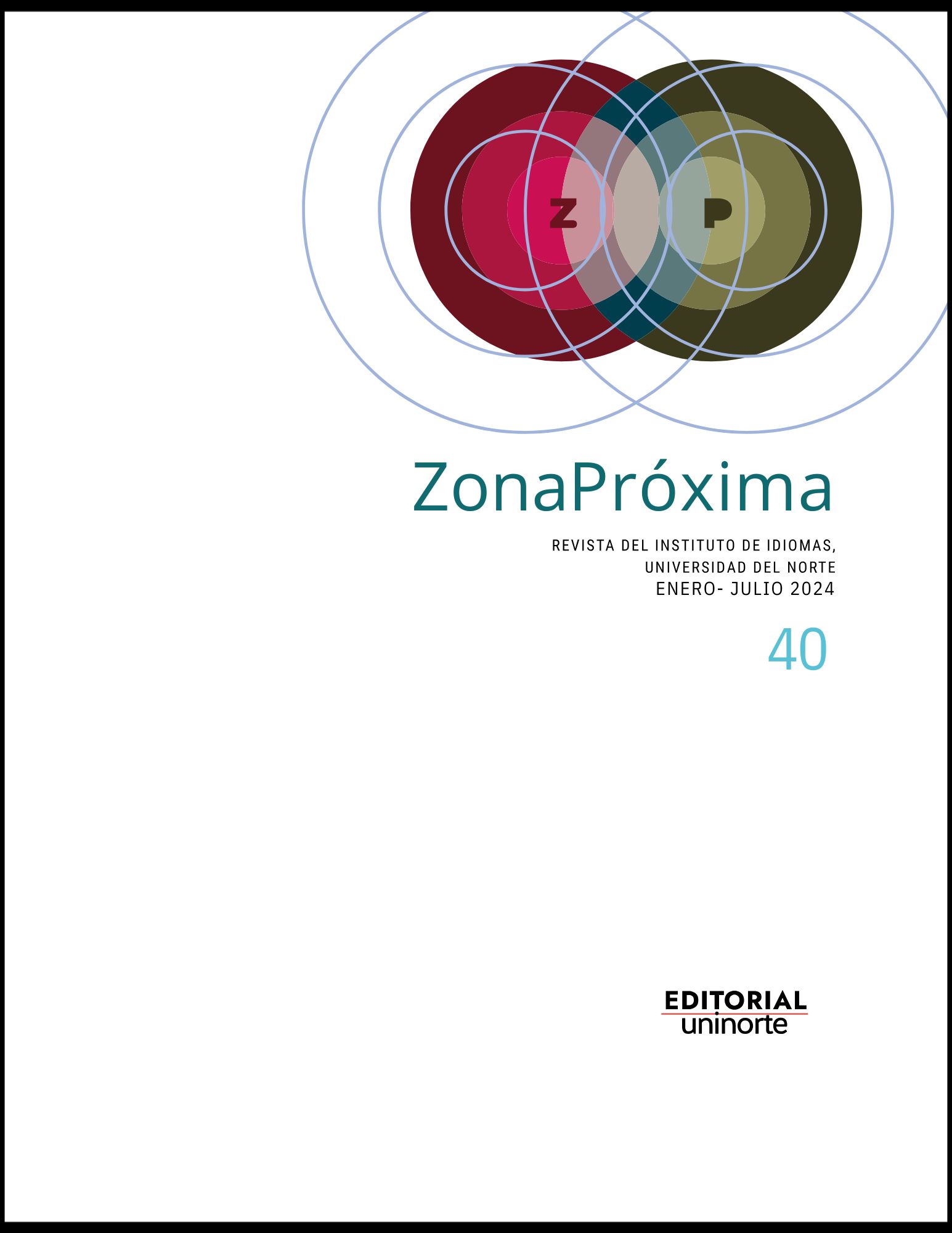Abstract
Writing groups are valuable support spaces for researchers in training, due to the collaborative dynamics between peers that arise within them. One of these is the review of text progress, in which a cognitive scaffolding and social support networks are built for novice writers, as is the case of postgraduate students.
To learn more about the effectiveness of this collaboration, in this study we explore the characteristics of the comments provided by peer reviewers, master´s students, in a group of this type, identified as a thesis writing circle.
We analyzed the focus and function characteristics of local and global written comments in an asynchronous review of shared dissertation progress in a cyber space, and compared those characteristics with those of oral comments exchanged in synchronous sessions. We also observed if the reviewers justified their comments or not, depending on the kind of speech, written or oral, or the kind of scope, local or global, on the reviewed texts.
We found that only half of the local written comments were justified, while the majority of the global comments, written and oral, were indeed justified. Written comments, regardless of their scope, focused on formal and structural aspects, while the focus of attention was diversified in the oral comments. The implicit directive function was the most frequent in all types of comments, and in the global comments the appreciative function was also recurrent.
References
Aitchison, C. y Guerin, C. (2014). Writing groups, pedagogy, theory and practice. En C. Aitchison y C. Guerin (Eds.), Writing Groups for Doctoral Education and Beyond. Innovations in practice and theory (pp. 3-17). Routledge.
Aitchison, C. y Lee, A. (2006). Research writing: problems and pedagogies. Teaching in Higher Education, 11(3), 265-278. https://www.doi.org/10.1080/13562510600680574
Álvarez, G. y Colombo, L. (2021). Dialogic approaches to writing: student perspectives on two Argentinian doctoral initiatives. Teaching in Higher Education, 1-15. https://www.doi.org/10.1080/13562517.2021.1952566
Álvarez, G. y Difabio de Anglat, H. (2017). La actividad metalingüística en espacios de interacción entre pares: reflexiones en torno a un taller virtual orientado a la escritura de la tesis posgrado. Perfiles Educativos, 39(155), 51-67. https://doi.org/10.22201/iisue.24486167e.2017.155.58102
Álvarez, G. y Difabio de Anglat, H. (2019). Retroalimentación entre pares en un taller virtual de escritura de tesis de posgrado. Apertura, 11(2), 40-53. https://www.doi.org/10.32870/Ap.v11n2.1540
Arancibia Gutiérrez, B., Tapia-Ladino, M. y Correa Pérez, R. (2019). La retroalimentación durante el proceso de escritura de la tesis en carreras de pedagogía: Descripción de los comentarios escritos de los profesores guías. Revista Signos. Estudios de lingüística, 52(100), 242-264. https://www.doi.org/10.4067/S0718-09342019000200242
Boud, D. y Lee, A. (2005). ‘Peer learning’ as pedagogic discourse for research education. Studies in Higher Education, 30(5), 501-516. https://doi.org/10.1080/03075070500249138
Cano, M., Corcelles, M., Castelló, M. y Fuentealba, M. (2012). Características y funciones de las ayudas en la revisión colaborativa de textos científicos-académicos. Congrés Internacional de Docència Universitària i Innovació, 1(1).
Carlino, P. (4-8 de julio de 2005). Revisión entre pares: un proceso y una práctica social que los posgrados deben enseñar [Exposición invitada]. X Congreso Nacional de Lingüística. A 400 años de la publicación de El Quijote, Salta, Argentina.
Carlino, P. (2008). Revisión entre pares en la formación de posgrado. Lectura y Vida, 29(2), 20-31. https://www.aacademica.org/paula.carlino/98
Chois, P. y Jaramillo, L. (2016). La investigación sobre la escritura en posgrado: estado del arte. Lenguaje, 44(2), 227-259. https://www.doi.org/10.25100/lenguaje.v44i2.4622
Colombo, L. (2014). Una experiencia pedagógica con grupos de escritura en el posgrado. Aula Universitaria, 1(15), 61-68. https://www.doi.org/10.14409/au.v1i15.4368
Colombo, L. y Álvarez, G. (2021). Iniciativas didácticas basadas en la revisión entre pares y orientadas a la enseña-aprendizaje de la escritura de tesis a nivel de posgrado. Educación y Humanismo, 23(40), 1-18. https://doi.org/10.17081/eduhum.23.40.3995
Colombo, L. y Carlino, P. (2015). Grupos para el desarrollo de la escritura científico-académica: una revisión de trabajos anglosajones. Lenguaje, 43(1), 13-34. https://doi.org/10.25100/lenguaje.v43i1.4993
Corcelles Seuba, M., Cano Ortiz, M., Bañales Faz, G. y Vega, N. A. (2013). Enseñar a escribir textos científico-académicos mediante la revisión colaborativa: El trabajo final de grado en Psicología. Revista de Docencia Universitaria, 11(1), 79-104. https://www.doi.org/10.4995/redu.2013.5593
García-Yeste, M. (2013) Electronic Feedback: Pedagogical Considerations for the Implementation of Software. The EUROCALL Review, 21(2), 39-48. https://www.doi.org/10.4995/eurocall.2013.9789
Guerin, C. (2014). The gift of writing groups. Critique, community and confidence. En C. Aitchison y C. Guerin (Eds.), Writing Groups for Doctoral Education and Beyond. Innovations in practice and theory (pp. 128-140). Routledge.
Kumar, V. y Stracke, E. (2007). An analysis of written feedback on a PhD thesis. Teaching in Higher Education, 12(4), 461-470. https://www.doi.org/10.1080/13562510701415433
Luchilo, L. (2010). Programas de apoyo a la formación de posgrados en América Latina: tendencias y problemas. En L. Luchilo (Ed.), Formación de Posgrado en América Latina. Políticas de apoyo, resultados e impactos (pp. 13-31). Eudeba.
Mattsson, J., Brandin, E.-K. y Hult, A.-K. (2020). Get a Room! How Writing Groups Aid the Development of Junior Academics’ Writing Practice and Writer Identity. Journal of Academic Writing, 10(1), 59-74. https://www.doi.org/10.18552/joaw.v10i1.602
Moreno Mosquera, E. y Ochoa Sierra, L. (2019). Análisis de comentarios escritos de directores de tesis de posgrado. Revista Colombiana de Educación, 1(76), 143-171. https://www.doi.org/10.17227/rce.num76-5725
Oluwole, D. O., Achadu, O., Asfour, F., Chakona, G., Mason, P., Mataruse, P. y McKenna, S. (2018). Postgraduate Writing Groups as Spaces of Agency Development. South African Journal of Higher Education, 32(6), 370-381. https://www.doi.org/10.20853/32-6-2963
Padilla, C. y López, E. (2019). Prácticas de retroalimentación en aulas universitarias de humanidades: Comentarios digitales docentes y perfiles estudiantiles de escritor. Revista Signos. Estudios de Lingüística, 52(100), 330-356. https://www.doi.org/10.4067/S0718-09342019000200330
Paré, A. (2014). Writing together for many reasons. Theoretical and historical perspectives. En C. Aitchison y C. Guerin (Eds.), Writing Groups for Doctoral Education and Beyond. Innovations in practice and theory (pp. 18-29). Routledge.
Scardamalia, M. y Bereiter, C. (1992). Dos modelos explicativos de los procesos de composición escrita. Infancia y Aprendizaje, 58, 43-64.
Tapia-Ladino, M., Correa Pérez, R. y Arancibia Gutiérrez, B. (2017). Retroalimentación con comentarios escritos de ajuste al género (CEAG) en el proceso de elaboración de tesis de programas de formación de profesores. Lenguas Modernas, (50), 175-192. https://lenguasmodernas.uchile.cl/index.php/LM/article/view/49257/53106


